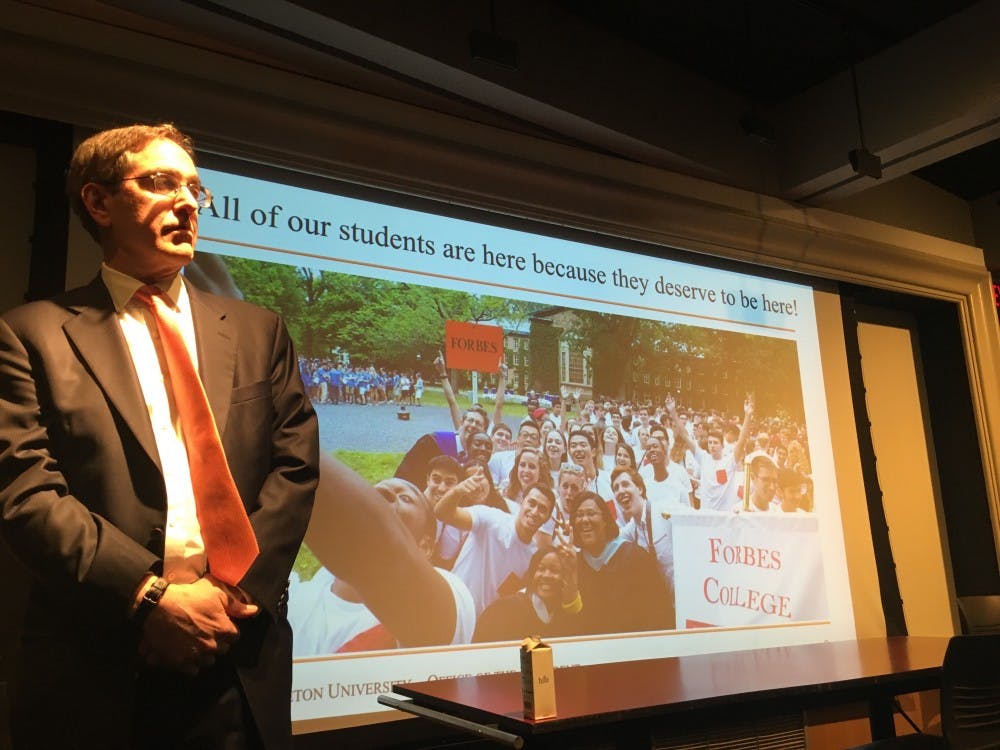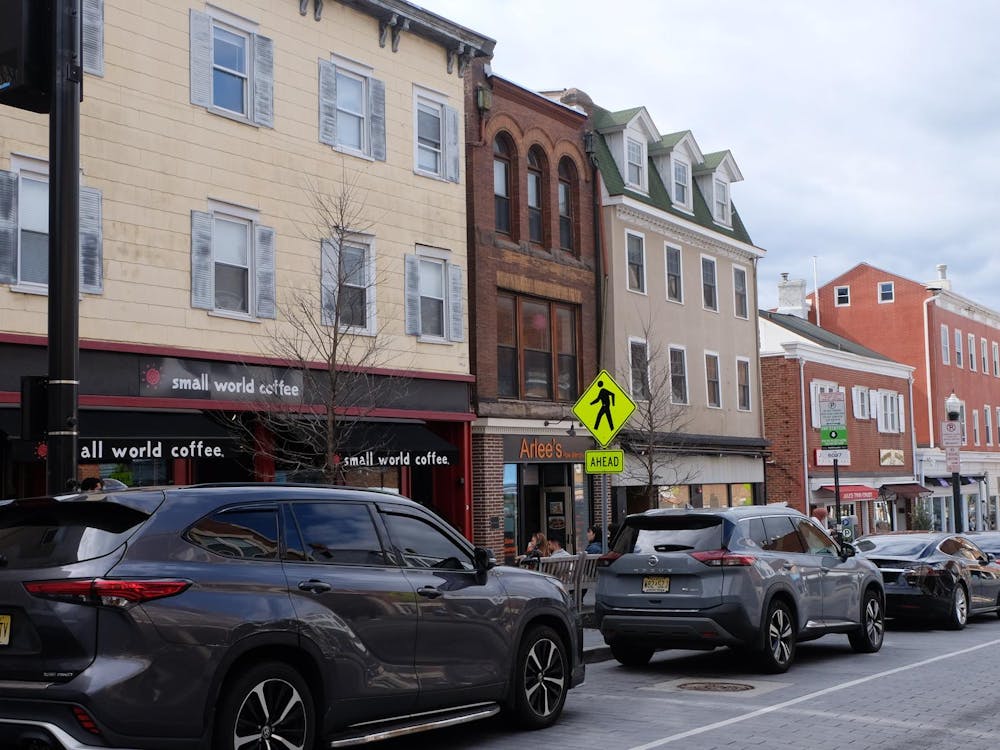At the first Council of the Princeton University Community (CPUC) meeting of the semester, President Christopher Eisgruber ’83 talked about University expansion, diversity milestones, and research partnerships with corporations such as Google.
This month’s CPUC meeting was held on Feb. 11 at 4:30 p.m., in Betts Auditorium in the Architecture School.
The University is currently working on an eight-year construction plan that would allow for expansion of the student body by 10 percent, Eisgruber said. By fall 2022, the University is scheduled to have its seventh residential college, Perelman College, ready to house students.
Eisgruber explained that Perelman, along with the planned eighth residential college, will allow not only for expansion of the student body, but also the renovation of existing dorms including some in Wilson College, whose residents may be temporarily housed in the new college during the project.
“For every student we admit, there are eight or nine other applicants who are just as good,” said Eisgruber, explaining that although the University currently turns down 95 percent of applicants, the Office of Admission believes that up to 18 percent of the pool would likely thrive here.
Eisgruber began the talk by celebrating “She Roars,” recalling the historic decision to make the University co-educational as a precedent for expansion.
“I am struck not only by how wise the University was to include women, but also to expand,” said Eisgruber. With the admittance of women in 1969, the University’s student population expanded by 30 percent. The expansion to be completed by 2026 pales in comparison.
Eisgruber argued that the University continues to “advocate in court and Congress on behalf of the students, faculty, and staff from around the world who contribute so powerfully to our University,” according to his presentation slides.

“We as a university and we as a country benefit from the free flow of talent,” Eisgruber said.
Reiterating many points from his Town Hall letter published on Feb. 6, he also stated that Title IX issues will require community-wide attention in the months ahead.
Eisgruber also supported Harvard University in the hotly debated affirmative action case, Fair Admissions v. Harvard, explaining that, as a constitutional lawyer, he believes the principles at the heart of the case are straightforward.
“It is simply unlawful under existing jurisprudence, regardless of whether [a university] has an affirmative- action policy, to discriminate in admissions based on racial stereotypes,” Eisgruber said. “So, firstly, there’s a factual issue here as to whether or not Harvard used such stereotypes against Asian Americans.”

Eisgruber spoke about the idea of “merit-based” admissions but challenged the notion that the best measure of an applicant’s merit lies in their numerical scores.
“I don’t believe college should be a test-taking competition, I don’t believe getting into college should be a test-taking competition, and I don’t believe life is a test-taking competition,” he emphasized.
During the question-and-answer section, students raised the issue of “Ban the Box,” a movement pushed on campus by Students for Prison Education and Reform (SPEAR), continuing a line of questions from December’s CPUC meeting.
Ban the Box is an ex-offender rights campaign, aimed at persuading institutions of higher education and employers to remove the application question that asks whether the applicant has a criminal record.
Leopoldo Solis ’21 pushed the question of why the University “still feels the needs to include the box,” considering that evidence “has shown time and time again” that there is bias in the criminal-justice system.
Eisgruber emphasized his commitment to confronting racism within the education system, but also stressed that it is important to look to people from all underrepresented backgrounds.
“If all else is equal, if we have two students from underrepresented backgrounds and one has committed a crime and one has not, I feel it is reasonable to look to that as a factor,” said Eisgruber.
He further explained that it would be reasonable for applicants with criminal records to have a space on the application to provide additional explanation of their circumstances.
Eisgruber maintained that “people should be held accountable for their actions” and that the “box” can reflect the character of the students admitted, particularly in terms of sexual-assault convictions.
When Eisgruber asked the protesting students whether they believed people who commit sexual assault should be held accountable, Amanda Eisenhour ’21 responded: “Is everyone on this campus who sexually assaults held accountable?” Eisgruber responded, “Yes,” dismissing Eisenhour’s reference to “stories” she has heard about Title IX violators returning to campus unpunished.
The meeting began with Provost Deborah Prentice’s presentation on the role of the Priorities Committee for Fiscal Year 2020. Prentice explained that the report was very similar to last year’s, since the University’s financial influx and expenditures have largely stayed the same.
Prentice lauded the University’s “robust financial-aid program,” with 61 percent of undergraduates receiving financial aid. She also explained that “every student is subsidized”; the University’s “sticker price” tuition only accounts for approximately 50 percent of per capita education expenditures.
The next CPUC meeting will be held on March 25.








